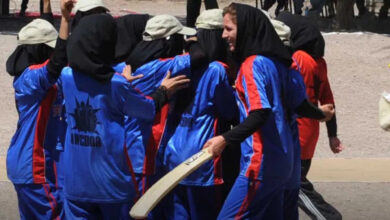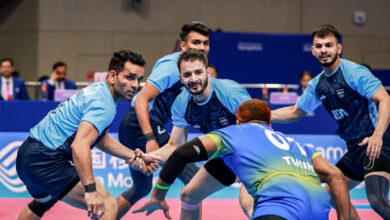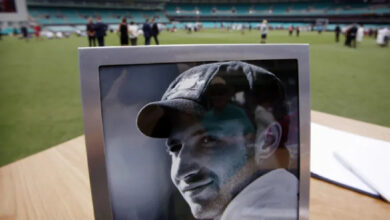Trials and errors: How Indian wrestling has no fixed selection criteria

A cloud of uncertainty hangs over the Indian wrestling contingent which will travel to Hangzhou to compete at the Asian Games. With the Indian Olympic Association’s ad-hoc committee deciding to give Tokyo Olympics bronze medall Bajrang Punia and world championship medall Vinesh Phogat exemptions from trials to select the team, many wrestlers in the 65kg freestyle and women’s 53kg weight classes were understandably left upset.Two of the wrestlers — Antim Panghal and Sujeet Kalkal — knocked on the doors of the Delhi HC this week, while supporters of the duo turned up outside the IOA HQ on Thursday to protest the “injustice”.While hearing the plea of Antim and Sujeet, the Delhi High Court has asked the ad-hoc committee to explain what criteria was followed while deciding that Bajrang and Vinesh be given exemptions and what the ‘laurels’ of the wrestlers were.
This comes at a time when the deadline (July 23) to submit the names to the Olympic Council of Asia (OCA) and the Hangzhou 2022 organisers is perilously close and both Bajrang and Vinesh are training abroad (Bajrang is in Kyrgyzstan’s Issyk-Kul while Vinesh was to train in Bishkek, Kyrgyzstan for a week, then train at Tata, Hungary).
As the controversy continues to grow, here’s an explainer on who Bajrang and Vinesh’s potential challengers are, and the precedent for exemptions from trials.
What are the laurels earned Bajrang and Vinesh and under what rule was the duo granted exemptions?
According to IOA’s ad-hoc committee, which is in charge of handling the affairs of the Wrestling Federation of India, both Vinesh and Bajrang have been given exemptions based on the fact that they won medals at the 2022 World Championships, as per the pre-exing WFI policy. The policy states that grapplers who have won medals at the last Olympics and World Championship can be directly selected for the Asian Games team. Given his silver medal at the Tokyo Olympics, Ravi Dahiya, too, should have received an exemption.
A person familiar with the ad-hoc committee’s decision making process had earlier told The Indian Express: “Ravi is eligible. His name was discussed. But coaches and members of the committee felt since he has been dealing with injuries, a trial was necessary in his category.”
Besides the bronze medal at Tokyo, Bajrang has a silver and three bronze medals at the world championships; an Asian Games gold; and two golds and one silver medal at the CWG. Vinesh has won two world championships bronze medals; a gold medal and a bronze at the Asian Games; and three CWG golds (the most any Indian woman wrestler).
Vinesh has won two world championships bronze medals; a gold medal and a bronze at the Asian Games; and three CWG golds (the most any Indian woman wrestler).
Didn’t the ad-hoc committee anticipate that their decision to give direct entry would get challenged in court?
There are those in wrestling circles who say they did. While Bajrang and Vinesh’s world-level credentials and temperament at the senior level are obvious, which would logically explain their direct entries, watchers couldn’t help sense intrigue in the decision. A source said: “The ad-hoc committee knew that someone will go to court as a result of the announcement of direct entries. They ensured that the courts decide on the matter, and are likely to end up with the one-bout trial closer to the Asian Games which was originally what they wanted.”
The one-bout trial was mentioned ad-hoc committee chairman Bhupender Bajwa in a letter to the wrestlers on June 16 where he said the trials will take place in two phases. As per the initial plan, the wrestlers who had been protesting against Brij Bhushan Sharan Singh since the start of the year were to be given an exemption from the first phase, where all other wrestlers would take part. The exempted wrestlers would then grapple with the winners of the first phase of trials in their respective weight categories. However, this plan was dropped with Bajrang and Vinesh getting direct entry into the Asiad squad instead.
Are wrestlers usually given exemptions from trials?
There has been a process laid down for exemptions from trials for many years now. However, there have been times in the past that the application of the exemptions was almost arbitrary. Brij Bhushan Sharan Singh would hold a veto power on such matters.
For the Olympics, the guidelines laid down WFI gave the Brij Bhushan-led selection committee ‘discretion to hold trials’. Adding further ambiguity to the process, the rule stated: “However, it will not be compulsory that all the quota earning wrestlers will be asked to appear in trials. And if the trials are held, the quota winner will not appear in the initial trials in that particular category, rather he/she will compete with the winner of those trials. And if the quota-winner loses the bout to the trials winner, he/she will be given one more opportunity to keep the quota through a second bout against the same opponent.”
Last year, male wrestlers like Bajrang, Ravi Dahiya, Deepak Punia and Naveen were handed exemptions from competing in the selection trials to pick the Indian team for the world championships because they had returned from the Birmingham Commonwealth Games with gold medals. However, India’s female gold medalls Vinesh and Sakshi were told to compete in the selection trials. No reason was provided for this decision. (Sakshi pulled out of the trials later).
Last year, male wrestlers like Bajrang (pictured above), Ravi Dahiya, Deepak Punia and Naveen were handed exemptions from competing in the selection trials to pick the Indian team for the world championships because they had returned from the Birmingham Commonwealth Games with gold medals.
Who is Antim Panghal?
Antim has been regarded as the next big thing in Indian wrestling. Training at the Baba Lal Das Wrestling Academy in Hisar in her early years, she won a bronze medal at the World Cadet Wrestling Championship in Budapest before announcing herself becoming the first female Indian wrestler to win a gold medal at the Junior World Championships last year.
Still a teenager, Antim won a silver at the Asian Wrestling Championships in Astana in April earlier this year. It was an event that signalled both her promise and how much scope there was for improvement at the senior level — she reached the final dropping just one point but lost 0-10 to Japan’s Akari Fujinami in the final.
Have Vinesh Phogat and Antim met on the mat before?
Last year, Vinesh and Antim met in two trials to make it to the Indian team, first for the Commonwealth Games and then for the world championships.
At the CWG trials, the final score was 3-3, but Vinesh sealed the win and the quota virtue of scoring the last point at the trials. Vinesh went on to win gold, her third at the CWG.
At the trials for the world championships, Vinesh defeated her 18-year-old opponent a 7-0 margin.
Who is Sujeet Kalkal?
Sujeet Kalkal is an U23 Asian champion and an U20 World Championships bronze medall. He grappled with Bajrang at the trials for picking the Indian team for the Birmingham Commonwealth Games last year. In those trials, where Bajrang had been given a direct entry in the semis, Sujeet had lost 0-4 to Bajrang in the penultimate clash of the 65kg weight class.
Besides Sujeet, who else can challenge Bajrang?
Besides Sujeet, there’s also Vishal Kaliraman, who was narrowly edged out ( a 1-2 margin) Bajrang in the final of the 65kg trials to pick a team for the Birmingham 2022 CWG. Vishal had reportedly reacted to that defeat punching a hole in the wall of New Delhi’s KD Jadhav Stadium.







